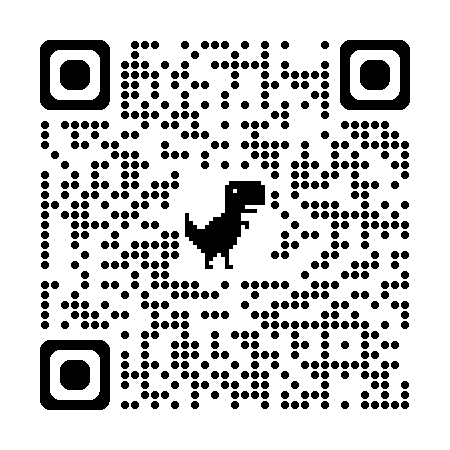Correlation between lack of information documentation and underdevelopment in Nigeria
Empirical evidence from experts
Abstract
Background: Nigeria is facing a severe problem of development. This is evidenced in the poor ranking on the human development index, poor infrastructure and weak institutions. Information is essential in promoting development initiatives, yet limited studies have examined the link between poor information documentation and Nigeria's under-development.
Objective: This study aimed to determine the link between lack of information documentation and under-development in Nigeria.
Methodology: The researcher utilized a descriptive survey research design involving a sample of 262 library experts in Nigeria. The questionnaire served as the instrument for data collection. Data for the study were analysed using descriptive and inferential statistics. Results were presented in tables and charts as were appropriate.
Results: Lack of information documentation contributes 36.1% to explain the problem of under-development in Nigeria. The challenges to information documentation in Nigeria include lack of political will, poor knowledge of the importance of information documentation on development, poor budgetary allocation, lack of human resources and poor public awareness of the centrality of information documentation.
Conclusion: Information documentation plays a vital role in promoting development initiatives of a country.
Unique contribution: The study has provided empirical evidence that explains the contributing role of the lack of information documentation on the under-development of Nigeria.
Key Recommendation: Information centres should be established in all the local government areas in Nigeria to serve as catalysts for development in Nigeria.
References
Agbiboa, E. (2010). The Corruption-Underdevelopment Nexus in Africa: Which Way Nigeria? The Journal of Social, Political and Economic Studies, 34 (4), 474-509.
Basu, M. & Das, P. (2012). Library use by undergraduate medical students of a tertiary care institution of West Bengal”, Indian Journal of Preventive & Social Medicine, 43 (3),316.
Cohen, J.W (1988). Statistical power analysis for the behavioural sciences (2nd ed). Hillsdale, NJ:Lawrence Erlbaum Associates
Collins, E. & Stone, G. (2014). Understanding patterns of library use among undergraduate students from different disciplines. Evidence-Based Library and Information Practice, 9 (3), 51–67.
Fornell, C., Larcker, D.F., (1981). Evaluating structural equation models with unobservable variables and measurement error. Journal of Marketing Research Article Postprint, 18 (1), 39–50.
Khan, G. and Bhatti, R. (2016), "An analysis of collection development in the university libraries of Pakistan", Collection Building, 35 (1), pp. 22-34. https://doi.org/10.1108/CB-07-2015-0012
Kim, K.-S. & Sin, S.-C.J. (2007). Perception and selection of information sources by undergraduate students: effects of avoidant style, confidence, and personal control in problem-solving”, The Journal of Academic Librarianship, 33 (6), 655–665.
Kumar V., & Pandey R. (2018).Understanding the document selection rationale of Library and Information Science students. Curative Collection, 37 (1),30-38.
National Bureau of Statistics (2021). Labor Force Statistics: Unemployment and Underemployment Report. Available at https://nigerianstat.gov.ng/elibrary?queries=Unemployment. Accessed 12 April 2022.
Odunlade, R.O. (2012). Managing employee compensation and benefits for job satisfaction in libraries and Information Centres in Nigeria. Library Philosophy and Practice (e-journal). 714.
Pareek, A.K. & Rana, M.S. (2013). Study of information-seeking behavior and library use pattern of researchers in the Banasthali University”, Library Philosophy and Practice(e-Journal), p. Paper 887.
Rasmussen, A. M. (2001). Information and Development: the information effect. Information Development, 17(1), 12–18. doi:10.1177/0266666014240629
Raimi, L., Akhuemonkhan, I. & Ogunjirin, O.D. (2015). Corporate Social Responsibility and Entrepreneurship (CSRE): antidotes to poverty, insecurity and underdevelopment in Nigeria, Social Responsibility Journal, 11 (1), 56-81. https://doi.org/10.1108/SRJ-11-2012-0138.
Skot‐Hansen, D., Hvenegaard Rasmussen, C. & Jochumsen, H. (2013). The role of public libraries in culture‐led urban regeneration. New Library World, 114 (1/2), pp. 7-19. https://doi.org/10.1108/03074801311291929
Thanuskodi, S. (2011). Reading habits among Library and Information Science students of Annamalai University: a survey. International Journal Education Science, 3 (2), 79–83.
United Nations Development Programme, (2022). Human Development Report. Retrieved from https://hdr.undp.org/
Downloads
Published
How to Cite
Issue
Section
License
Copyright (c) 2022 Kingdom H Kari

This work is licensed under a Creative Commons Attribution-NonCommercial-ShareAlike 4.0 International License.



